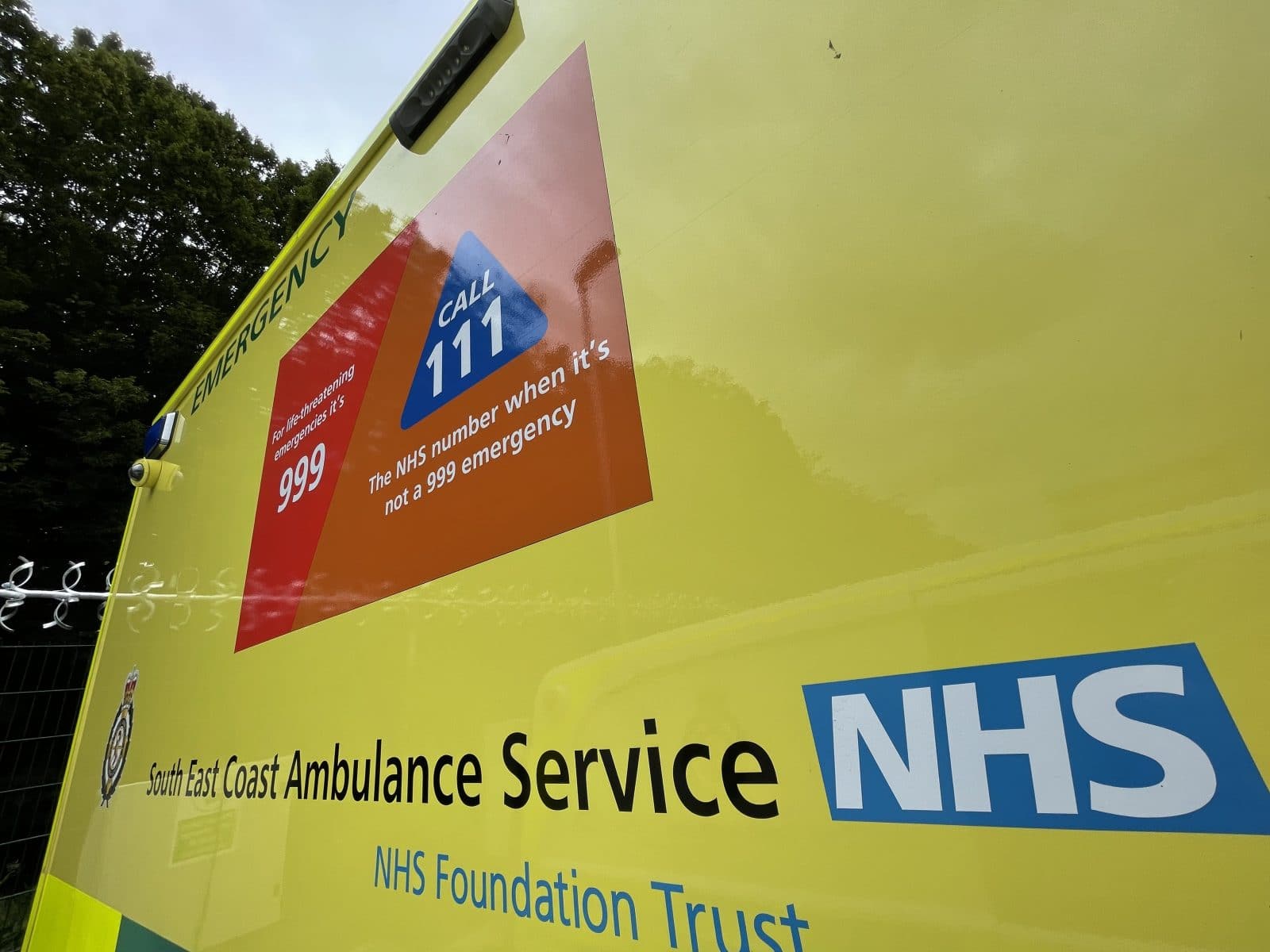
South East Coast Ambulance Service NHS Foundation Trust (SECAmb) is urging people to carry out a final check of their Christmas lists to ensure they have done everything to protect themselves and others this Christmas.
While picking up the turkey and those last-minute gifts are sure to feature, people are also urged to get a covid vaccine or booster as soon as they are able to and also ensure they are sufficiently stocked with general household medicines and have ordered any required repeat prescriptions ahead of the coming bank holidays weekends.
Throughout the festive season and New Year, the public are also urged to make use of alternatives to calling 999 if not facing a serious or life-threatening emergency. These include calling 111 or visiting NHS 111 online at 111.nhs.uk for urgent health advice or if unsure of where they should seek help. People should also take regular lateral flow device home tests and isolate immediately and arrange a PCR test if they have any COVID-19 symptoms.
SECAmb Medical Director Dr Fionna Moore said: “There is still time to sort some important things which can help you, and in turn, SECAmb and the wider NHS this Christmas and New Year.
“Getting a vaccine or booster should be top of the list but there are some other really simple things people can do which will help themselves and others over the coming weeks.
“People should check their stocks of general household medicine including paracetamol and other cold and flu remedies and ensure that it is all in date. It’s also really vital that people order any repeat prescriptions ahead of the long bank holiday weekends. I’d also urge people to check on any vulnerable family or friends to ensure they are safe and have everything they need and to consider speaking to a community pharmacist who can give really useful advice on minor ailments.
“We are expecting a challenging period and will be prioritising our response to our most seriously ill and injured patients. People not facing a serious emergency will wait longer for a response.
“Anyone who is not facing an emergency but still needs urgent advice or anyone who simply doesn’t know where to go for help will benefit from calling 111 or visiting 111 Online. The service, which we’re proud to run along with the 999 service across much of our region, can give health advice or direct you to the service which is best for your needs.”
SECAmb has a list of winter tips to help people stay safe this winter.
SECAmb winter tips
- Take up the opportunity for flu and COVID-19 booster vaccinations when offered to protect yourself and others.
- Look out for any vulnerable family or friends – is there anything you can do to help them? Are there any hazards in their homes? Do their slippers need replacing? We attend falls to older and vulnerable people all year round
- Wear appropriate shoes when outside especially during icy weather. We typically see an increase in slips and trips during colder spells
- Heat homes to at least 18C (65F). You might prefer your main living room to be slightly warmer
- Keep your bedroom at 18C all night if you can – and reduce drafts – if you’re under 65, healthy and active, you can safely have your home cooler than 18C, as long as you’re comfortable
- Keep active when you’re indoors. Try not to sit still for more than an hour or so
- Wear several layers of light clothes. They trap warm air better than one bulky layer
- Check your home medicines cabinet – is everything in date? Restock with essentials including cold remedies, pain killers, indigestion tablets and diarrhoea and constipation remedies
- Keep up to date with any repeat prescriptions you or your family or friends need
- When was the last time your vehicle was serviced? If your car is safer, so are you
- Carry some useful items in your vehicles such as a blanket and a spade for colder and possible snowy weather
- Wear bright colours at night. Can you be clearly seen as a pedestrian or cyclist? If walking at dusk or at night use a torch
- You should only call 999 in the event of a life-threatening or serious emergency
- People who are not facing a serious emergency should make alternative arrangements such seeking advice from a GP or pharmacist so we can focus on those who need us most. If its urgent but not an emergency you can call NHS 111 or seek advice from 111 online at 111.nhs.uk
